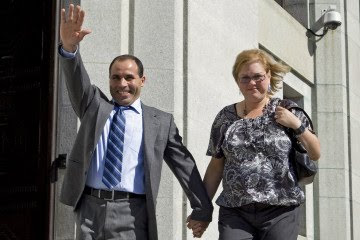MORE STREET TALK

Should the homeless be allowed to risk life and limb by sleeping outside in cold weather?
Should we, the righteous, be allowed to intervene?
Do civil rights trump the preservation of life?
These are just a few of the questions being raised by the prospect of a new law in BC that would allow the police to take homeless people to shelters against their wills when the weather is miserable and life-threatening.
Somehow we must find a balance as a community between the extremes of a jackboot police state that is only concerned about cosmetics and a laizzez-faire do-nothing society that allows people to die in our streets in the name of freedom.
This is what I think.
Police and others should be encouraged to actively try to get homeless people into shelters as often as possible even when the weather is not particularly life threatening. If that makes police occasional social workers, so be it. Often, they are already being social workers and that's fine.
If a street person absolutely and resolutely refuses to move to an offered shelter, what are we supposed to do? Some would argue that we must act on that person's behalf and move him or her to safety against his or her will. He hasn't the clear mental capacity to make the decision for himself, goes the argument.
I would say that only in the rarest of instances should we use force and compel the move.
What are those rare cases?
I can't say.
But when it comes to life and death decisions, people on the front lines, like the police, make these choices quite often, usually unnoticed and unheralded.
I think the guiding principle should be encouragement, rather than law and force. And active, regular encouragement. Deliver the message on a daily basis that living on the street is not the best idea and that alternatives exist. If, in fact, they do exist.
If, on rare occasion, force or law is brought into a situation as a last resort, I will have o judge that moment when I see it.





